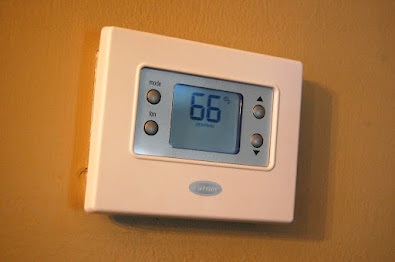5 Key Advantages of Rooftop HVAC Installations
Rooftop HVAC installations have gained significant popularity in recent years due to their numerous benefits. Whether for residential or commercial buildings, these systems offer several advantages over traditional ground-level installations. In this article, we'll explore five key advantages of rooftop HVAC installations.
1. Space Optimization:
One of the primary benefits of rooftop HVAC systems is the efficient use of space. By placing the HVAC units on the roof, you free up valuable indoor space that can be utilized for other purposes. This is especially beneficial for commercial buildings where every square foot counts. Additionally, rooftop installations eliminate the need for an equipment room inside the building, further maximizing usable space.
2. Improved Air Quality:
Rooftop HVAC units are designed to draw in fresh air from the outside, rather than recirculating indoor air. This can significantly improve indoor air quality by reducing the concentration of indoor pollutants and allergens. Additionally, rooftop installations minimize the risk of outdoor contaminants entering the building through the HVAC system, leading to a healthier indoor environment for occupants.
3. Enhanced Energy Efficiency:
Rooftop HVAC systems are typically more energy-efficient than their ground-level counterparts. Placing the units on the roof allows for better airflow and ventilation, resulting in improved system performance and lower energy consumption. Additionally, rooftop installations minimize heat gain from the surrounding environment, further enhancing energy efficiency and reducing utility costs over time.
4. Easy Maintenance and Accessibility:
Maintaining rooftop HVAC units is generally easier and more convenient compared to ground-level installations. Service technicians can access the units without disrupting daily operations inside the building, making routine maintenance tasks quicker and more efficient.
5. Noise Reduction:
Rooftop HVAC installations can help mitigate noise pollution inside the building. Placing the units on the roof keeps the mechanical equipment away from occupied spaces, reducing the transmission of noise and vibrations indoors. This is particularly beneficial for commercial buildings, where a quiet and comfortable environment is essential for productivity and customer satisfaction.
Rooftop HVAC installations offer numerous advantages, including space optimization, improved air quality, enhanced energy efficiency, easy maintenance and accessibility, and noise reduction. Whether for residential or commercial applications, choosing a rooftop HVAC system can provide long-term benefits for building owners and occupants alike.




Comments
Post a Comment